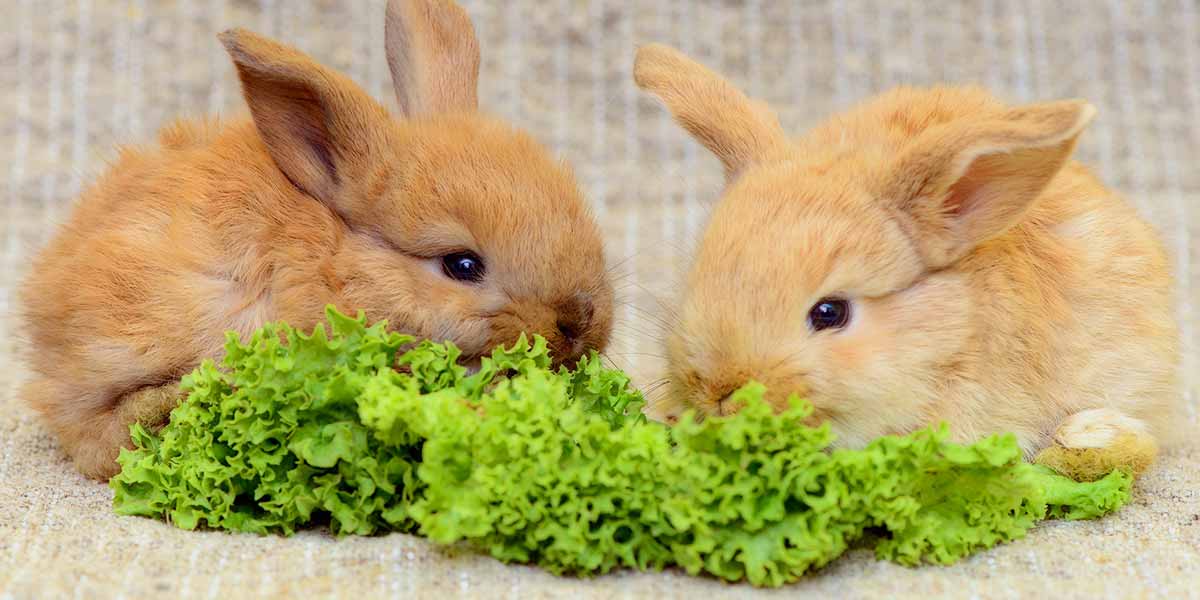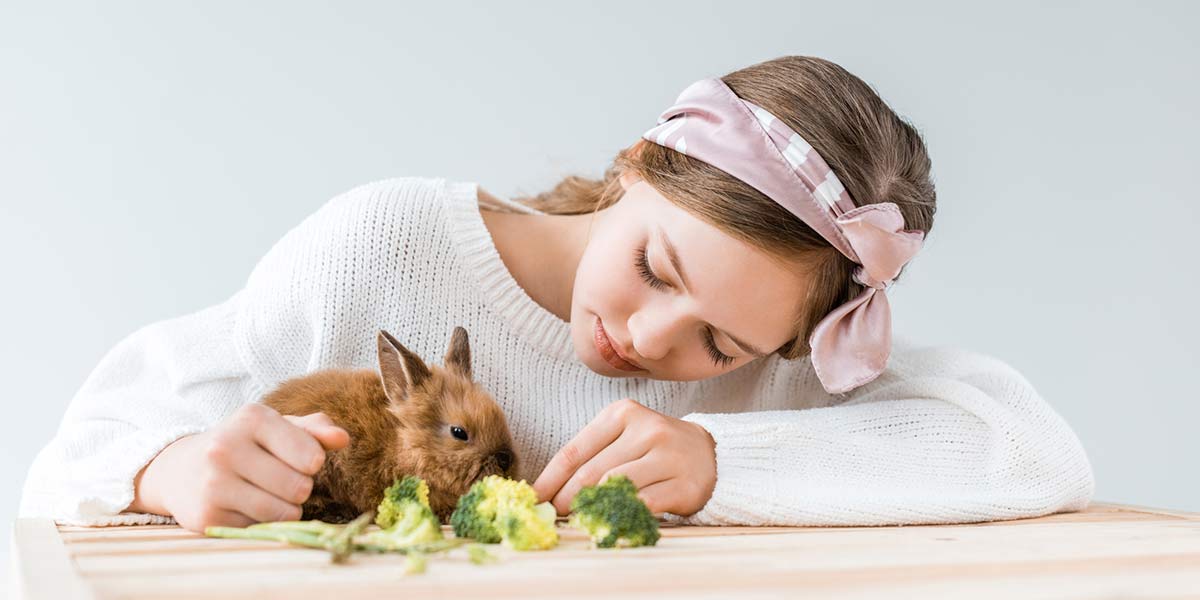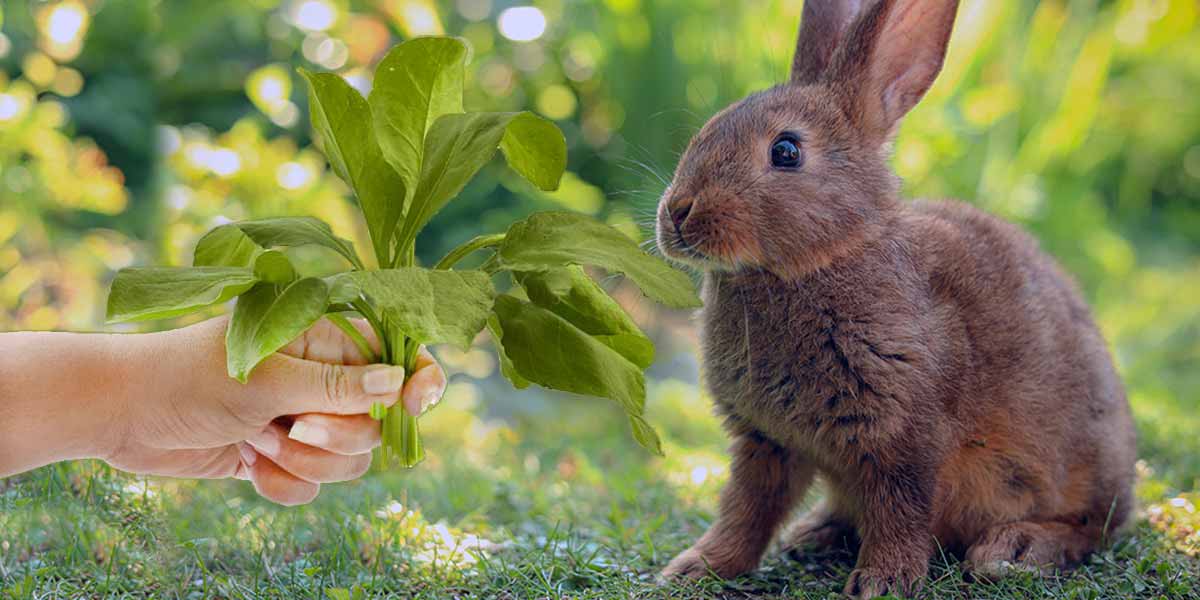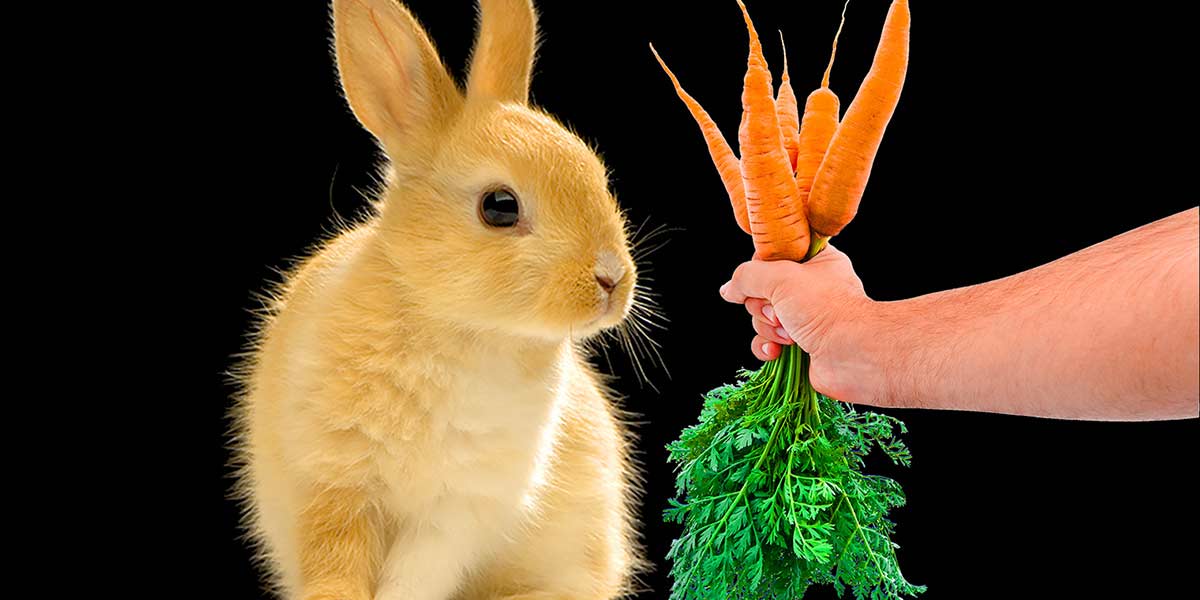Can I feed my rabbit lettuce? One question that often arises for rabbit owners is whether lettuce is safe to feed their rabbits. As pet owners, we always want to ensure the health and happiness of our companion animals.
As an affiliate, we earn from qualifying purchases. We get commissions for purchases made through links in this website’s posts from Amazon and other third parties.
In this blog post, we will explore the importance of a balanced diet for rabbits, and why feeding them a variety of vegetables and leafy greens is essential for their overall well-being. We’ll also discuss why it’s important to exercise caution when introducing new foods to your rabbit’s diet.
While rabbits love to nibble on fresh greens, it is important to be aware of the potential digestive issues that lettuce can cause when fed in excess.
So, whether you’re a new rabbit owner or a seasoned pro, read on to learn more about feeding your bunny friend a safe and healthy diet.
Can I feed my rabbit lettuce? Rabbits can suffer from digestive issues if they eat too much lettuce
One of the most common misconceptions about feeding rabbits is that they can thrive on a diet consisting mainly of lettuce. In reality, rabbits can actually suffer from digestive issues if they eat too much of this leafy green.
Lettuce contains a high amount of water, which can cause diarrhea and other digestive problems in rabbits. Additionally, it lacks the necessary nutrients and fiber that rabbits need to maintain a healthy diet.
Can I feed my rabbit lettuce? Feeding rabbits an excessive amount of lettuce can also cause their appetite to decrease, leading to a lack of overall nutrition. It’s important for rabbit owners to be aware of this issue because, without proper nutrition, rabbits are at risk for a variety of health problems including dental issues and gastrointestinal stasis, a condition in which the digestive system slows down or stops entirely. However, there are safe alternatives for rabbit owners to ensure their pets receive proper nutrition without risking digestive issues.
A variety of leafy greens and vegetables are available that contain the fiber and nutrients necessary for rabbits’ health.
While it may be tempting to give your rabbits a treat like lettuce, it’s important to recognize the potential risks and opt for a varied and healthy diet instead. In the next paragraph, we’ll delve deeper into some of the best options for your furry friend’s nutritional needs.
Is lettuce safe for rabbits? Video:
Lettuce can be a great addition to your rabbit’s diet, as it is low in calories and high in fiber. However, not all types of lettuce are created equal. Iceberg lettuce, for example, is not recommended as it has very little nutritional value and can cause digestive issues. Instead, opt for darker, leafy greens such as romaine, arugula, and kale. As with any new food, introduce lettuce slowly and in small amounts to avoid upsetting your rabbit’s stomach.
Feeding rabbits a variety of vegetables and leafy greens is a much safer and healthier option for their diet. In the next section, we’ll discuss some of the best options for your furry friend, including nutritional requirements and potential risks associated with certain vegetables and greens. With a little research and some careful planning, you can ensure your rabbits are getting everything they need to maintain optimal health and happiness.
Can I feed my rabbit lettuce? Risks of feeding your rabbit lettuce
While lettuce may seem like a healthy and harmless snack for your rabbit, there are actually several risks associated with feeding them this leafy green.
Lettuce can cause diarrhea in rabbits
First and foremost, lettuce contains lactucarium, a substance that can cause diarrhea in rabbits. This can lead to dehydration and other health issues if not addressed promptly.
Lettuce can upset your rabbit’s digestive system
Additionally, lettuce is high in water content and low in fiber, which can upset your rabbit’s delicate digestive system. This can lead to bloating, gas, and other uncomfortable symptoms.
Iceberg lettuce can be harmful to your rabbit’s health
Furthermore, some types of lettuce, such as iceberg lettuce, have very little nutritional value and can actually be harmful to your rabbit’s health if fed in large quantities. According to peta.org iceberg lettuce is among the 15 unhealthier foods for rabbits.
Overall, while small amounts of lettuce may be okay as an occasional treat, it’s best to stick to leafy greens that are safer and more nutritious for your rabbit, such as kale, parsley, and cilantro.
Which type of lettuce can I feed my rabbit?
What kinds of lettuce can rabbits eat? Video:
When it comes to feeding your rabbit lettuce, not all types are created equal. Some types of lettuce are safe for your rabbit to eat, while others can be harmful to their health.
Here are some types of lettuce that you can safely feed your rabbit:
- Romaine lettuce: This type of lettuce is one of the best options for your rabbit. It is high in fiber and low in calcium, which is important for preventing bladder stones.
- Green leaf lettuce: Another safe option for your rabbit is green leaf lettuce. It is also high in fiber and low in calcium.
- Red leaf lettuce: This type of lettuce is similar to green leaf lettuce and is safe for your rabbit to eat.
- Butterhead lettuce: Butterhead lettuce, such as Bibb or Boston lettuce, is also safe for your rabbit to eat. It is lower in fiber than other types of lettuce, so it should be fed in moderation.
On the other hand, there are some types of lettuce that you should avoid feeding your rabbit:
- Iceberg lettuce: This type of lettuce has very little nutritional value and can cause digestive problems for your rabbit if fed in large quantities.
- Arugula: While arugula is safe for your rabbit to eat in small amounts, it should not be a regular part of their diet. It is high in oxalic acid, which can interfere with calcium absorption.
- Spinach: While spinach is a healthy food for humans, it should not be fed to rabbits. It is high in oxalic acid and can cause health problems for your rabbit.
In summary, when feeding your rabbit lettuce, stick to safe options such as romaine, green leaf, red leaf, and butterhead lettuce. Avoid feeding them iceberg lettuce, arugula, and spinach. Remember to always introduce new foods to your rabbit slowly and in small quantities to prevent digestive upset.
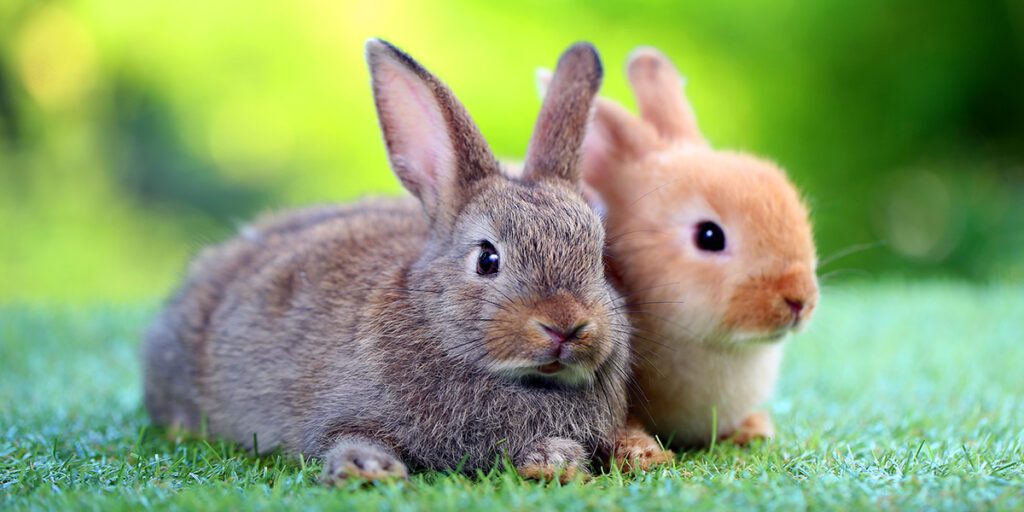
Feeding rabbits a variety of vegetables and leafy greens is a much safer and healthier option for their diet
Rabbits make wonderful pets, but as responsible pet owners, we must provide them with the right diet. Rabbits are herbivores and require a balanced diet of hay, vegetables, and water for optimal health. While vegetables and leafy greens are excellent options for feeding rabbits, some types, like lettuce, can cause digestive problems.
Feeding rabbits various vegetables and leafy greens is essential to maintain a balanced diet for our furry pets. These options are rich in nutrients, fiber, and water, and provide the necessary vitamins and minerals essential for their health.
However, not all vegetables are safe for rabbits. Many pet owners think that lettuce is a great option for rabbits, but it can cause digestive issues due to its high water content, low fiber, and sugar content. Too much lettuce can lead to diarrhea, which can be fatal for rabbits if left untreated.
One solution to avoid digestive problems in rabbits is to provide them with a variety of vegetables and leafy greens instead of feeding them a single type. A variety of greens such as kale, spinach, mustard greens, and collard greens have high fiber content, low sugar, and low water content, making them an excellent choice for feeding rabbits.
Another solution is to limit the amount of vegetables and leafy greens given to rabbits. Overfeeding rabbits with vegetables can make them lose interest in hay and pellets, causing a nutritional imbalance in their diet. A responsible pet owner must provide a balanced diet and ensure that their rabbits do not overeat vegetables.
Therefore, rabbits should be fed vegetables and leafy greens so their diet will be safer and healthier. Including different types of greens and limiting their intake can prevent digestive issues and keep our furry friends happy and healthy. As pet owners, it is our responsibility to ensure that our pets are provided with a balanced diet for a long and healthy life.
A balanced diet of vegetables and leafy greens will provide your rabbit with essential nutrients and help keep their digestive system functioning properly
A balanced diet of vegetables and leafy greens is essential for maintaining the overall health and well-being of your pet rabbit. Rabbits are herbivores, meaning their diet is primarily made up of plants.
Therefore, it is important to ensure that the plants they consume are rich in essential nutrients to support their growth, provide energy, and keep their digestive system functioning properly. The benefits of providing your rabbit with a balanced diet of vegetables and leafy greens are numerous.
Firstly, it can help prevent digestive problems that can occur if rabbits do not receive enough fiber in their diet. Vegetables and leafy greens contain a high amount of fiber which helps keep their digestive system functioning optimally.
Secondly, these foods can help maintain a healthy weight for your rabbit. Vegetables and leafy greens are low in calories but high in essential nutrients, which can help your rabbit feel full without gaining weight.
Lastly, a diet rich in vegetables and leafy greens can support your rabbit’s immune system. These foods contain important vitamins and minerals that can strengthen your rabbit’s immune system and promote overall health.
Here are some important key factors and useful information to keep in mind when providing your rabbit with a balanced diet of vegetables and leafy greens:
- Provide a variety of vegetables and leafy greens to ensure your rabbit receives a range of essential nutrients.
- Avoid feeding your rabbit vegetables that are high in sugar such as carrots and fruits.
- Monitor your rabbit’s weight and adjust their diet accordingly to ensure they are maintaining a healthy weight.
- Always introduce new foods slowly to prevent digestive upset.
- Make sure that your rabbit has access to fresh, clean water every time of the day.
- Check with a vet before introducing any new foods to your rabbit’s diet, particularly if they have any underlying health conditions.
For the health of your rabbit and to prevent a range of health issues, you should feed him a balanced diet that is high in vegetables and leafy greens. By following these key factors and providing your rabbit with a variety of nutritious foods, you can help your furry friend live a long, healthy, and happy life.
Conclusion
Can I feed my rabbit lettuce? The answer is: Avoid the lettuce with light-colored leaves, feed your rabbit with dark-colored leaves! Although it may be tempting to give your rabbit lettuce as a treat or as part of their diet, it’s important to recognize the potential for digestive problems if too much lettuce is consumed.
It should be noted that lettuce should only be given in moderation and should not replace hay as the main part of their diet. If they exceed the recommended amount, they may suffer from digestive problems, bloating, or even potentially fatal conditions such as diarrhea or intestinal blockage.
A more balanced approach, incorporating a variety of vegetables and leafy greens, is not only safer but also essential for providing your rabbit with the nutrients they need to thrive. By maintaining a healthy diet for your bunny, you can help ensure their overall well-being and happiness.

